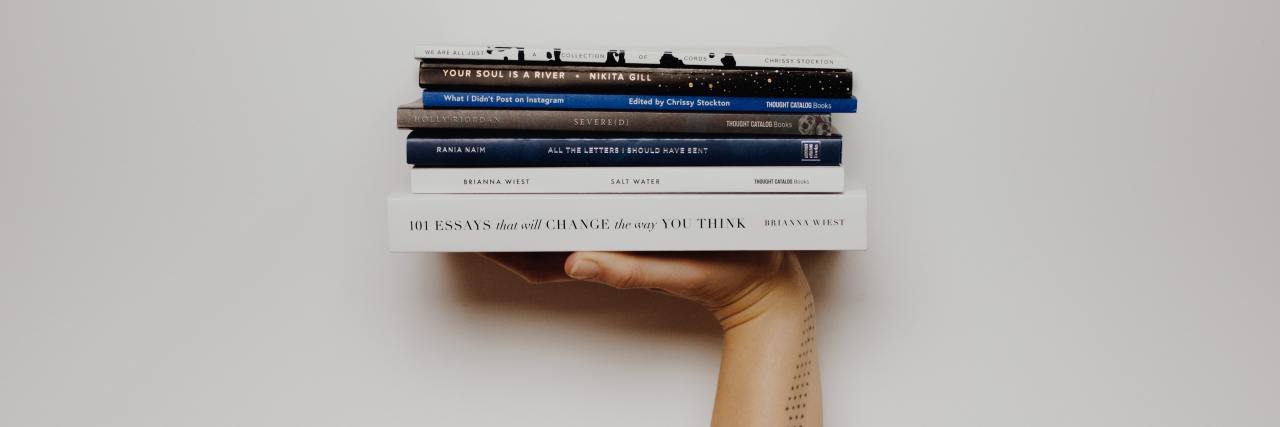4 Must-Read Books About Mental Illness
I found the following books to be both entertaining and thought-provoking. I hope you will, too. Two of the books in this list were recommended to me by colleagues that work at a mental health clinic. I found the other two books after watching the movies that were based on them. After reading my recommendations, I not only hope you will find and enjoy one or more books from the list, but that a conversation will be started in the comments. I really want to know what you think, too!
1. “Hidden Valley Road” by Robert Kolker (non-fiction)
This biographical novel was chosen for Oprah Winfrey’s book club and became a New York Times bestseller. As the reader gets to know a family that has six of 12 children living with schizophrenia, the reader also gets to watch the science of schizophrenia evolve, parallel to the children’s lives. This book would make an amazing mini-series because there is so much drama: Violence, survival, abuse, neglect, hope, rape, murder, love, forgiveness, trauma, tragedy, suicide, substance abuse, determination and more. Health-related elements included are pharmacology, gene study, institutionalization, stigmatization, insurance issues, comorbidities, medicinal side effects, electroconvulsive therapy, research studies and processes and psychological theories. It is an entertaining page-turner that educates, a valuable read to both mental health workers and anyone living the human condition.
2. “13 Reasons Why” by Jay Asher (fiction)
This young adult novel tackles the difficult topic of teenage suicide. Other subjects included are bullying, depression, rape, drugs, alcohol and survivor guilt. This novel forces the reader to think about why teens die by suicide and how to prevent it. Instead of sweeping difficult subjects under the rug, it brings them out with intention and purpose. The beauty in this book is not the book itself, but the discussions that can come from it. There are even suggested discussion questions at the end. There is a Netflix series based on this book. The series has content that is added and changed that make it more “Hollywoodized” than I believe the author originally intended.
3. “Building a Life Worth Living” by Marsha M. Linehan (non-fiction)
Do you need inspiration that anyone can make a positive difference in the world, no matter their history? This is for you. Marsha M. Linehan shares her story from self-harm and hopelessness to creating the world-renowned gold standard in therapy for one of the most difficult psychological diagnoses. The therapy is dialectical behavior therapy (DBT). The diagnosis is borderline personality disorder (BPD). This memoir guides the reader through Marsha’s personal experiences with BPD, what it is and how it affected her life. The reader will walk through all the steps that led to the birth of DBT — from hospitalizations and college life, to Catholic and Buddhist spiritual experiences. The heart of DBT is mindfulness and acceptance. The therapy was made for BPD, but DBT skills are applicable to everyone in everyday life. Marsha’s life is an extraordinary example of how vulnerability can lead to victory.
4. “One Flew Over the Cuckoo’s Nest” by Ken Kesey (fiction)
There is a movie based on this book and it is worth watching, but as books turned to movies go, the books are almost always better in my opinion. The biggest thing you won’t get in the movie that is foundational in the book is the full story of the silent Native American. In the movie, this character has a fairly small role; in the book, he is the narrator. The book climbs into the mind of this character, a character that lives in the distorted reality of psychosis. The overall story is based on the author’s experience working in a mental institution in the 1960s. This book was a part of the deinstitutionalization movement to get patients out of the oftentimes inhumane conditions of mental institutions.
My discussion and research recommendations after reading are to investigate and consider the pros and cons to the mass shutdown of mental health institutions: Better treatment of the mentally ill, increased homelessness and incarceration. Things are better than they once were, but they can still be better for people with mental illness in America.
Unsplash image by Thought Catalog

